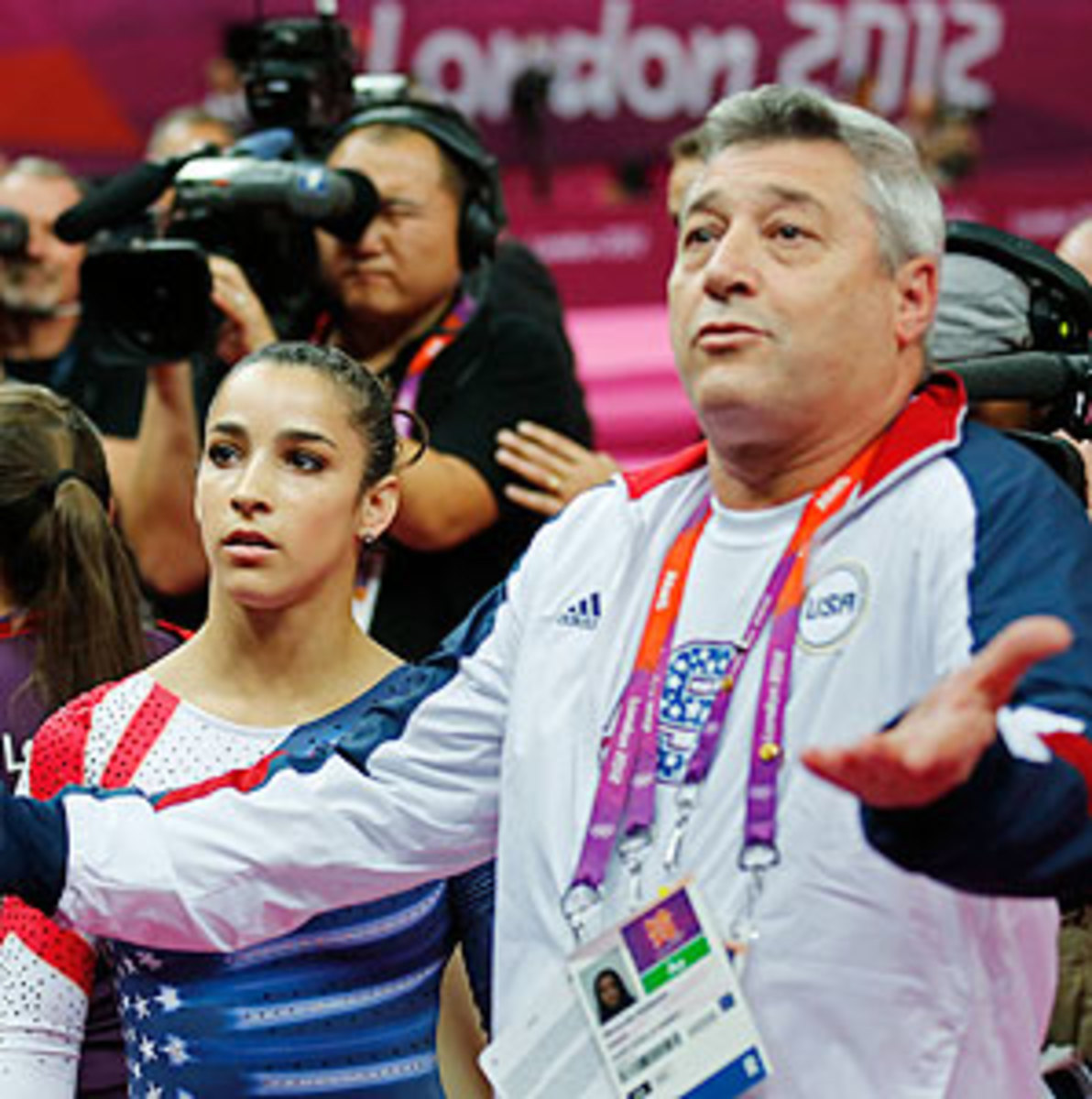Explaining the inquiry system that has wreaked havoc on London gym


LONDON -- As if gymnastics scoring couldn't get any more confusing, these Olympics brought to the forefront a new term in its often-questioned judging process: the inquiry.
An inquiry is a verbal challenge of the score of a gymnast's routine, valid only between the time the gymnast's final score is posted and before the end of the next gymnast's exercise. It must be confirmed in writing within four minutes of the verbal inquiry, according to the International Gymnastics Federation (FIG). It costs $300 cash to make the inquiry (but the fee is returned if the inquiry is upheld, kind of like challenges in the NFL or tennis).
In short, if the gymnast, coach or country sees a score they don't like, the coach can make an appeal. They must provide a reason -- like the gymnast wasn't given credit for a skill -- but any routine is subject to inquiry.
In the men's team final, an inquiry was put in on Japan's final routine of the competition, Kohei Uchimura's pommel horse. The inquiry was accepted (Uchimura was initially judged not to have performed a scorable dismount but then was credited with one worth seven tenths of a point in review), his score upgraded and Japan elevated from fourth place to second place as a result. Great Britain, which had been celebrating a silver medal, was bumped to bronze. Ukraine went from third to fourth.
In the men's all-around final, Germany inquired into Fabian Hambuchen's pommel horse score, and it was rejected. As a result, they had to cough up $300.
The inquiry came up a third time -- in journalism, this is what's called a trend -- in the final afternoon of individual event finals Tuesday. Aly Raisman was the last of eight women to go on balance beam and scored a 14.966 for, apparently, fourth place.
Hold on. There was an inquiry. Raisman said U.S. national team coordinator Martha Karolyi and her husband, Bela, yelled toward her coach on the floor, Mihai Brestyan, to inquire. (Bela no longer works for USA Gymnastics and is credentialed through NBC for the Olympics, according to USA Gymnastics.)
"I think at first [Brestyan] didn't know that he should do it, but then they yelled for him to do it, so he did it," Raisman said. "And I'm not really exactly sure how it works, but I think that they were arguing about my full turn and not giving me the connection [points], so they replayed and realized that they should have given it to me."
Upon an inquiry, judges -- an apparatus supervisor and/or the Superior Jury (made up of FIG technical committee members) -- go to video review of the routine. The review, as we've seen this past week, can take up to a few minutes.
A FIG official confirmed that Raisman's inquiry was accepted with her difficulty score being upgraded by one tenth of added connection points. That one tenth moved her into a tie for third place with Romania's Catalina Ponor. By gymnastics' tiebreaking rules, Raisman was immediately put into third place and Ponor fourth because Raisman's execution score was higher.
The open-ended difficulty score -- based on the attempted elements during a routine -- makes up part of a gymnast's total score in one routine, along with the execution score -- based on how well the gymnast performs said elements with a maximum of 10 for every gymnast. The difficulty and execution scores are added together for a final score. Raisman's 14.966 on beam was the addition of a 6.2 difficulty score (6.3 after the inquiry) and an 8.766 execution score.
The inquiry was introduced along with FIG's new scoring system following the 2004 Olympics, where judging disasters marred the men's all-around and high bar finals. (The inquiry replaced an appeals process, which had a far lower rate of overturning scores at the 2004 Olympics, at least) The FIG did away with the perfect 10 and redid its "code of points" system with the more complicated two-pronged approach. The benefits of the change included eliminating potential bias in judging, the FIG said in 2005. Video review was also introduced.
Jordyn Wieber's coach, John Geddert, kept a pre-filled-out written inquiry form with him during competition Tuesday.
"You don't have enough time to fill things out," Geddert said.
They're like school permission slips or excused absence notes, only a little more detailed.
It reads, "The coach considers that the Difficulty score for the exercise presented by the above athlete does not correspond to the real value of the gymnast's presentation."
Geddert had already filled in blanks for the country, coach's name, discipline (women's artistic gymnastics), apparatus and the gymnast's name and number.
The reason for the inquiry must be detailed on the reverse side of the form.
The biggest concern about the inquiry process is the lack of time. It's similar, again, to the NFL or tennis where challenges must be made quickly.
"I agree with the system," Brestyan said. "The system sometimes helps. Sometimes not."
It didn't help Romania's Ponor, the 2004 triple Olympic champion bumped to fourth after the inquiry and tiebreaker. Ponor said she was retiring from the sport with no regrets.
In the men's team final, Ukraine was bumped out of the medals due to Uchimura's accepted inquiry. Afterward, Ukraine's coach, Yuliy Kuksenkov, said "life is life" and summed up the subjective nature of gymnastics scoring.
"In athletics, 100 meters is just 100 meters," he reportedly said. "Sometimes in gymnastics, it's 95 meters or 105 meters."
